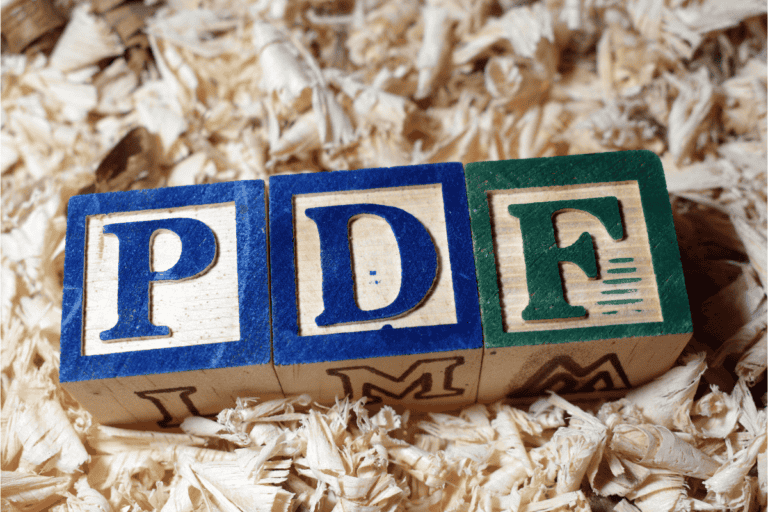Understanding Bipolar Disorder and Mental Health
Did you know that approximately 2.8% of U.S. adults experience bipolar disorder in a given year?
Understanding the complexities of bipolar disorder and mental health is crucial in today's society. It's important to recognize the impact it can have on individuals and their loved ones, as well as the importance of seeking proper support and treatment.
This deeper understanding can lead to more compassionate and effective ways of addressing mental health challenges.
Key Takeaways
- Bipolar disorder is a complex mental health condition characterized by extreme mood swings and can be categorized into different types, including rapid cycling and mixed episodes.
- Collaborative treatment planning is essential for managing bipolar disorder, involving a diagnosis, exploring treatment options such as medication management and therapy, and working closely with healthcare providers.
- Managing bipolar disorder requires implementing a comprehensive treatment plan that includes consistently taking prescribed medication, engaging in therapy, and maintaining regular exercise and sleep patterns.
- Bipolar disorder can have a significant impact on personal, professional, and social relationships, and it is important to prioritize open communication, conflict resolution, and seek therapy or support groups for relationship challenges.
What Is Bipolar Disorder?
Bipolar disorder is a complex mental health condition characterized by extreme shifts in mood, energy, and activity levels. It can be challenging to understand because the causes and triggers of bipolar disorder aren't yet fully understood. The condition is believed to be influenced by a combination of genetic, biological, and environmental factors. Stressful life events, substance abuse, and disruptions in circadian rhythms can also act as triggers for bipolar episodes.
When it comes to treatment options, it's essential to consult with a mental health professional to develop a personalized plan. Medications such as mood stabilizers, antipsychotics, and antidepressants are commonly used to manage symptoms. Psychotherapy, particularly cognitive-behavioral therapy and interpersonal and social rhythm therapy, can also be beneficial. These therapies can help individuals understand their condition, manage stress, improve relationships, and regulate daily routines.
Understanding the causes and triggers of bipolar disorder is crucial in developing an effective treatment and therapy plan. With the right support and guidance, individuals can learn to manage their symptoms and lead fulfilling lives. It's essential to remember that finding the right combination of treatments and therapies may take time, but it's possible to achieve stability and well-being.
Types of Bipolar Disorder
It's important to understand that bipolar disorder isn't a one-size-fits-all condition.
There are different types of bipolar disorder, each with its own unique characteristics and challenges.
From Bipolar I and II to rapid cycling and mixed episodes, it's crucial to recognize the distinctions between these types in order to receive the most effective treatment and support.
Bipolar I Vs. II
Understanding the key differences between Bipolar I and Bipolar II can provide valuable insight into the unique aspects of each type and guide effective treatment strategies. While both types involve mood swings, Bipolar I is characterized by manic episodes, often with mixed or psychotic features, while Bipolar II involves hypomanic and depressive episodes. Here's a comparison of the two types:
| Aspect | Bipolar I | Bipolar II |
|---|---|---|
| Manic Episodes | Present | Not as severe as in Bipolar I |
| Depressive Episodes | Present | Present |
| Comorbidity | Higher likelihood of co-occurring psychiatric disorders | Commonly co-occurs with anxiety and substance use disorders |
| Treatment Approach | Often requires more intensive treatment | May respond to different medication options |
Understanding the differences between these types can help tailor treatment approaches and medication options to effectively manage symptoms and improve quality of life.
Rapid Cycling
Comparing the differences between Bipolar I and Bipolar II gives valuable insights into the diverse manifestations of the disorder, and now we'll explore the phenomenon of rapid cycling within the spectrum of bipolar disorder.
Rapid cycling is characterized by experiencing four or more mood episodes within a year, often leading to intense emotional fluctuations. Managing emotions during rapid cycling can be challenging, but therapeutic techniques such as cognitive-behavioral therapy (CBT) and dialectical behavior therapy (DBT) have shown effectiveness in stabilizing mood swings and regulating emotions.
Additionally, maintaining a consistent daily routine, practicing stress-reducing activities like mindfulness and meditation, and ensuring proper sleep hygiene can also play pivotal roles in managing rapid cycling. It's crucial to work closely with mental health professionals to develop a personalized treatment plan that addresses the unique challenges of rapid cycling.
Mixed Episodes
Experiencing mixed episodes in bipolar disorder can present a complex interplay of both depressive and manic symptoms, posing unique challenges for individuals navigating the fluctuating emotional landscape. During mixed episodes, you may feel agitated, hopeless, and full of energy all at once, making it difficult to understand and manage your emotions. Here are some challenges and strategies to consider:
| Mixed Episode Challenges | Managing Mixed Episodes |
|---|---|
| Overwhelming feelings of despair and restlessness | Seek immediate professional help to stabilize mood |
| Conflicting impulses and racing thoughts | Engage in relaxation techniques to calm the mind |
| Difficulty concentrating and making decisions | Utilize a daily schedule and set small achievable goals |
| Increased irritability and impulsivity | Practice mindfulness and self-awareness techniques |
| Elevated energy levels coupled with feelings of hopelessness | Maintain a consistent sleep schedule and avoid caffeine and alcohol |
Navigating mixed episodes can be incredibly challenging, but with the right support and coping strategies, it is possible to manage these intense emotional fluctuations.
Symptoms and Warning Signs
Recognizing the symptoms and warning signs of bipolar disorder is crucial for seeking timely and effective treatment. Understanding mental health and being aware of the signs can make a significant difference in managing the condition.
Symptoms of bipolar disorder can vary widely, but common signs of mania include excessive energy, decreased need for sleep, and reckless behavior. On the other hand, depressive episodes may manifest as persistent sadness, loss of interest in activities, and changes in appetite or sleep patterns.
If you or a loved one is experiencing these symptoms, seeking help from a mental health professional is essential. It's important to promote awareness and open conversations about mental health to ensure that individuals receive the support they need.
Managing stress and developing healthy coping strategies can also contribute to maintaining balance for those with bipolar disorder. Supporting loved ones through their journey and encouraging them to seek appropriate treatment are crucial aspects of managing the condition.
Diagnosing Bipolar Disorder
To diagnose bipolar disorder, a mental health professional will typically conduct a thorough assessment of your symptoms, medical history, and any potential contributing factors. Understanding symptoms and their impact on your daily life is crucial for an accurate diagnosis.
Here's what you can expect during the diagnostic process:
- Detailed Interviews: Your mental health professional will engage in in-depth discussions to understand your mood patterns, sleep habits, energy levels, and any past episodes of mania or depression.
- Mood Charts or Diaries: Keeping track of your daily moods, energy levels, and sleep patterns can provide valuable insights into your condition.
- Medical History Review: Your doctor will review your medical history, including any family history of mental health conditions or other contributing factors.
- Physical Examination: A physical exam and possibly some laboratory tests may be conducted to rule out any underlying medical conditions.
- Collaborative Treatment Planning: Once diagnosed, your mental health professional will discuss treatment options, including medication management and therapy, to develop a comprehensive plan tailored to your needs.
Receiving a diagnosis of bipolar disorder can be overwhelming, but it's an essential step towards understanding and managing your condition effectively.
Treatment Options
Understanding the treatment options available is an integral part of effectively managing bipolar disorder following the diagnostic process. Medication options play a crucial role in stabilizing mood swings and managing symptoms of bipolar disorder. Mood stabilizers such as lithium, anticonvulsants like valproic acid, and atypical antipsychotics are commonly prescribed to help regulate mood and prevent episodes of mania and depression. It's important to work closely with a healthcare provider to find the right medication and dosage that works best for you, as individual responses to medication can vary.
In addition to medication, therapy techniques are an essential component of treatment for bipolar disorder. Cognitive-behavioral therapy (CBT) can help individuals recognize and change negative thought patterns and behaviors, while interpersonal and social rhythm therapy (IPSRT) focuses on stabilizing daily routines and sleep patterns. Family-focused therapy can also be beneficial in providing support and education for both the individual with bipolar disorder and their family members, fostering understanding and effective communication.
Combined with medication, therapy techniques can significantly improve symptom management and overall quality of life for individuals with bipolar disorder.
Managing Bipolar Disorder
You can effectively manage bipolar disorder by implementing a comprehensive treatment plan that combines medication, therapy, and lifestyle adjustments. It's important to understand that managing bipolar disorder is a journey that requires patience and dedication, but with the right approach, it's possible to lead a fulfilling life.
Here are some key strategies to help you effectively manage bipolar disorder:
- Medication Management: Work closely with your healthcare provider to find the right medication and dosage that works for you. Consistently taking your prescribed medication is crucial for stabilizing your mood.
- Therapy and Support: Engage in cognitive therapy to learn effective coping strategies and to gain a deeper understanding of your condition. Additionally, participating in support groups can provide a valuable source of encouragement and understanding.
- Regular Exercise: Incorporating regular physical activity into your routine can help alleviate symptoms of bipolar disorder and boost your overall mood.
- Healthy Sleep Patterns: Establishing a consistent sleep schedule and practicing good sleep hygiene can significantly impact your mood stability.
- Stress Management and Relaxation Techniques: Learning and implementing stress-reducing techniques such as mindfulness, meditation, or yoga can help you manage stress and maintain emotional balance.
Impact on Relationships
Navigating bipolar disorder can significantly impact your relationships, requiring understanding and support from both you and your loved ones. The unpredictable nature of bipolar disorder can affect your ability to maintain stable, consistent interactions with those around you. This can lead to challenges in your personal, professional, and social relationships.
The impact on work can be particularly significant, as mood swings and energy levels may affect your ability to perform consistently. It's important to communicate openly with your employer and colleagues about your condition, as well as seek accommodations if necessary.
Navigating conflict within relationships can also be challenging, as mood episodes may lead to misunderstandings or strained interactions. It's crucial to work on building strong communication skills and conflict resolution strategies with your loved ones.
Seeking therapy together or attending support groups can also provide valuable tools for navigating the impact of bipolar disorder on relationships.
Supporting Mental Health
Maintaining a supportive environment is crucial for managing the challenges of bipolar disorder and promoting mental well-being. When it comes to supporting mental health, it's important to consider various factors that can positively impact the well-being of individuals with bipolar disorder. Here are some key strategies to support mental health:
- Stigma Reduction: Educate yourself and others about bipolar disorder to reduce the stigma surrounding mental health conditions. Encouraging open conversations and dispelling misconceptions can create a more accepting and supportive environment.
- Community Support: Building a strong support network can provide a sense of belonging and understanding. Connecting with support groups or online communities can offer valuable encouragement and shared experiences.
- Self-Care: Prioritize self-care practices such as maintaining a healthy lifestyle, getting regular exercise, and practicing stress-reducing activities like mindfulness or meditation.
- Therapy Options: Explore different therapy options such as cognitive-behavioral therapy (CBT) or interpersonal and social rhythm therapy (IPSRT) to develop effective coping strategies and manage symptoms.
Supporting mental health involves a collective effort to foster understanding, provide resources, and encourage proactive self-care and treatment options. By addressing stigma, promoting community support, and emphasizing self-care and therapy, individuals with bipolar disorder can receive the necessary support to manage their condition and improve their overall well-being.
Coping Strategies
In addressing the challenges of bipolar disorder and promoting mental well-being, understanding effective coping strategies is essential for individuals managing this condition. Stress management is crucial. Learning to identify triggers and developing healthy ways to cope with stress can help in managing the symptoms of bipolar disorder.
Engaging in activities such as yoga, meditation, or deep breathing exercises can be beneficial in reducing stress and promoting emotional regulation. Additionally, building a strong support system is vital. Surrounding yourself with understanding and supportive individuals can provide comfort and encouragement during difficult times.
Self-care is equally important. Establishing a routine that includes regular sleep patterns, exercise, and a balanced diet can contribute to overall well-being. It's essential to recognize the signs of an impending mood swing and take proactive steps to manage it.
Seeking professional help and adhering to treatment plans is also crucial in coping with bipolar disorder. Remember, while it may be challenging at times, with the right coping strategies and support, it's possible to lead a fulfilling life despite bipolar disorder.
Promoting Awareness
Promoting awareness about bipolar disorder and its impact on mental health is crucial for fostering understanding and empathy in society. By actively engaging in the following strategies, you can play a significant role in promoting awareness and reducing stigma:
- Stigma Reduction: Engage in conversations that challenge stereotypes and misconceptions about bipolar disorder. By sharing personal stories or factual information, you can help dispel myths and reduce the stigma surrounding this condition.
- Community Support: Actively participate in local support groups or online communities dedicated to bipolar disorder. Providing a supportive environment for individuals living with bipolar disorder can create a sense of belonging and understanding.
- Education: Take the initiative to educate yourself and others about bipolar disorder. Understanding the symptoms, treatment options, and impact on individuals' lives can help combat misinformation and promote empathy.
- Advocacy: Get involved in advocacy efforts aimed at improving mental health resources and support systems. By advocating for better access to mental health care and challenging discriminatory practices, you can contribute to positive societal change.
- Open Dialogue: Encourage open and non-judgmental discussions about mental health in your social circles. By fostering an environment where individuals feel comfortable sharing their experiences, you can help break down barriers and promote understanding.
Conclusion
In conclusion, understanding bipolar disorder is crucial for supporting mental health.
Did you know that 1 in 50 adults in the United States has been diagnosed with bipolar disorder?
By learning about the types, symptoms, and treatment options, you can better support yourself or a loved one with this condition.
It's important to promote awareness, provide support, and develop coping strategies to manage the impact of bipolar disorder on daily life.







